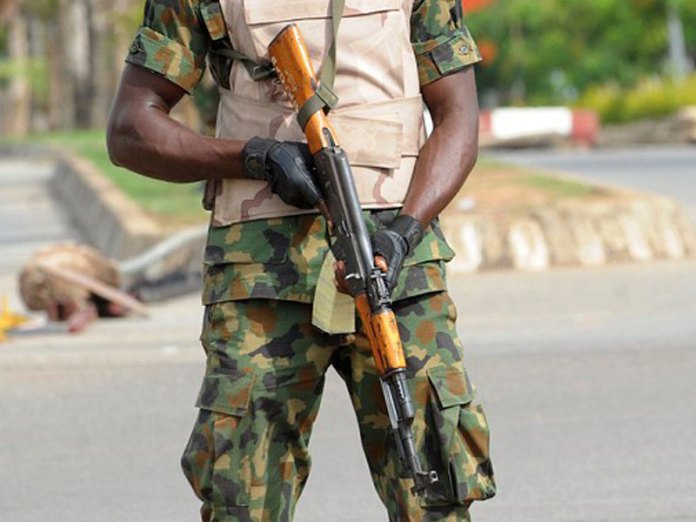The January 19 raid on the offices of an online investigative news organization in Nigeria’s capital Abuja is part of a continuing government attempt to quash bad publicity.

Dapo Olorunyomi, the widely respected publisher of Premium Times, was arrested, along with judicial reporter Evelyn Okakwu, after the site published three articles to which Chief of Army Staff Tukur Buratai objected. If the raid was designed to curb further attention to the reporting, it backfired badly.
Thursday’s detentions prompted a rapid response by Nigerians and by international organizations, with the topic quickly trending on Twitter. Prominent Nigerians tracked the hours in detention and pressed for the journalists’ release. Newspapers rushed to post the news on their websites.
The Committee to Protect Journalists and Amnesty International issued quick condemnations. Jennifer Cooke, Africa Director at the Washington D.C.-based Center for Strategic and International Studies, tweeted that Olorunyomi is a “media hero”. The Washington Post’s Karen Attiah retweeted.
When the two were released late in the evening on bail, the collective sense of relief was tempered by the news that they had been ordered to report back to Police Command Headquarters at 8AM Friday morning.
Premium Times – continuing to break news – quoted “a highly placed police source” warning that the two might be taken before a magistrate and then held for a lengthy period.
This week’s events were preceded by a letter dated 22 December, signed by an army official on behalf of Buratai, that cited three stories and demanded retractions and an apology. One, published on 21 October, reported that over 80 Nigerian soldiers were missing after an attack by the terror group Boko Haram, whose campaign in northeast Nigeria has led to one of the world’s worst humanitarian emergencies.
Millions of people are displaced and malnourished. Schools and clinics have been destroyed, and polio has broken out, after Nigeria had been declared polio-free.
Military sources told Premium Times that “soldiers have had to endure months of unpaid salaries” and soldiers told the paper’s investigators that they often are served only one meal of beans a day. Officials who asked to remain anonymous said some officers were keeping money and supplies intended for the fighting forces.
Premium Times defiantly responded to the military complaint, saying its reporting was well-researched and factual and served the interests of the Nigerian people. Earlier this week, police visited the news organization’s offices, issuing what editors called “chilling threats.”
Speculation is widespread among Nigerians protesting the arrests – many of whom worked hard for President Mohammadu Buhari’s election – that the president may not have known about the raids in advance. Buhari won on promises to attack corruption, which had grown for years and assumed massive proportions under the government of his predecessor, Goodluck Jonathan.
The presidency has had a tough time, with the challenge of Boko Haram in the north, a revived insurgency among youth in the oil-producing Niger Delta, and clashes between farmers and herders in the middle of the country. Plummeting world oil prices have decimated the country’s economy.
It is not surprising that dissatisfaction has mounted. Yet Nigerians had united across religious, ethnic and age divisions to organize and campaign for Buhari’s improbable win, and many have remained hopeful that the president’s moral authority could still turn things around.
If the public in general becomes persuaded that corruption is being tolerated at high levels, disillusion will grow. If soldiers risking their lives to defeat Boko Haram – best known outside Nigeria for kidnapping school children and for the ‘Bring Back Our Girls’ campaign young Nigerians launched in response – are left without necessary supplies and funds, disenchantment could prevail.
For now, both Nigerians and their international friends are watching the fate of Dapo Olorunyomi and Evelyn Okakwu for clues about what to expect in Africa’s most populous nation.

